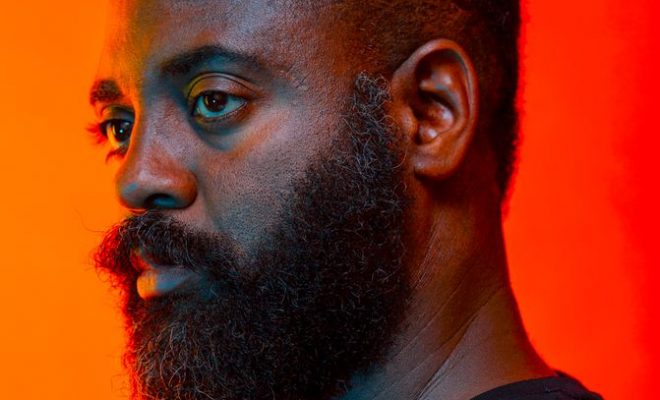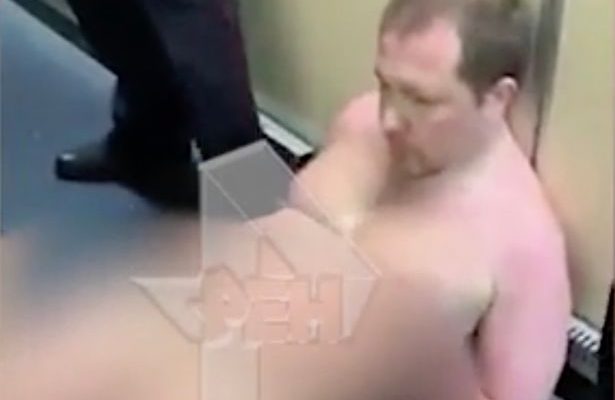Could an Ex-Convict Become an Attorney? I Intended to Find Out

One afternoon in the fall of 2016, I sat in a windowless visiting room at the Manson Youth Institution in Cheshire, Conn. A recent graduate of Yale Law School, I was a certified legal intern on a fellowship in the New Haven public defender’s office. J., a lanky 18-year-old brown-skinned kid sitting across from me, was my first client. He didn’t talk. Instead he stared at me as if I were the police. Sanford O. Bruce III, my supervising attorney, listened as I explained to J. (one of his initials) what we knew of the charges against him. A young man with whom J. attended high school had claimed that J. and another kid he didn’t know had threatened him with a pistol, then robbed him of his cellphone and a couple of hundred dollars. Officers arrested J. minutes later, but the other suspect, who supposedly held the gun, was never found.
The prosecutor thought he should serve time in prison. I let J. know this and described what would happen next: a series of court dates, a bond-reduction motion, plea-bargain offers. After remaining silent for nearly 40 minutes, he leaned forward in the blue plastic chair, cutting me off, and asked, “Aren’t you the one who did time in prison?” With a single question, this kid reminded me of what a law degree, even one from Yale, could not do — make my own criminal history vanish.
On Dec. 7, 1996, a month and two days after my 16th birthday, I climbed with four other people into a beat-up ink-colored sedan in Prince George’s County, Md. During that year, I’d read the Evelyn Wood guide to speed reading and J. California Cooper’s novel “The Wake of the Wind.” My Advanced Placement U.S. history teacher at Suitland High School had nicknamed me Smoky after he spied me rolling a blunt before his first-period class. I hadn’t won a fight since second grade. Had been suspended half a dozen times — once for setting off a stink bomb, but every other time for what teachers called being disruptive but was really just talking too much. People knew me for finding four-leaf clovers, doing back flips and making too many jokes. I didn’t know who I was.
The driver, who was in his early 20s, was a stranger to me. I half-knew his cousin. I’d brought my friend Marcus, who had played on the junior-varsity basketball team with me, to the cousin’s house to get high. In the passenger seat, another face I’d just met said a robbery would pad our pockets. Weed, ignorance and a desire for a come-up, wanting just a few more dollars than we had, made us believe him. We ended up on I-95 at night, headed to the Springfield Mall in Fairfax County, Va. The driver gave me his pistol — because I’d asked for it. I stared at it, my life about to be riven.
He told me not to take the gun’s safety off, for any reason. An accidental gunshot could get us all killed or sent to prison for life. At the mall, I first approached two people headed toward a parked car. My arm stretched toward the ground, the pistol dangling in my hand. One of them turned and saw me. Before I knew it, two women jumped in their car and disappeared. Minutes later, I approached one of the few cars in the lot. I saw a man asleep. I tapped twice on the window with the pistol’s barrel, demanded that he get out of the car and turn over his keys and his wallet. Marcus and I drove away in the stolen vehicle. The next day, before the end of the Sunday church service Marcus’s mother attended, the police had us in handcuffs, caught at a different Virginia mall shopping with another man’s credit card.
After meeting with J., I sat in my office with his file, a thin sheaf of no more than a dozen pages. I pulled out my own criminal record. One hundred-odd pages spilled from the accordion folder. I stared at the documents scattered across my desk: my neat cursive on the handwritten confession; a faded yellow summons demanding my mother appear in court, as if my crime belonged to her; the sentencing order consigning me to prison. The prison scrubs that J. wore, the jail cell that held him, the early mornings when deputies would take him shackled and cuffed to court, connected us. I wanted him to believe that the worst of what might happen could be overcome. But I wasn’t sure if that was true.
Some 10 months later, I would receive a letter from the Connecticut Bar Examining Committee. The committee, it said, would not recommend me for admission to the bar. Under Connecticut law, felons are presumed to lack the character and fitness required to practice law unless they can prove otherwise. I might eventually be allowed to practice law, or, I realized with a cold, dull clarity, I might not.
One time in prison, I watched a man crack the jaw of another man with a padlock rolled up in a sock. Everyone knew the victim as the man who made wine by letting bread, fruit and jelly ferment in a black trash bag. He brought happiness and escape to the men there. When he was struck, blood squirted from his nose and mouth. He seemed startled that such pain had found him, astonished that he had been hurt in that way. But me, I’d known what to expect before the disappointing news from the bar examiners arrived. And still, the letter left me weeping.
Months after pleading guilty to carjacking, attempted robbery and a firearm charge, I sat shackled and cuffed in the Fairfax County Courthouse, waiting for my sentencing. I faced a maximum of life plus 13 years. My mother, two aunts and one uncle, along with two family friends, sat in the audience, anxious. The man whose car I’d stolen quietly looked on. Back then, I would have said we hadn’t injured him, but the truth is that PTSD is a real injury, and the pistol I waved in his face may stay with him still.
My mother didn’t testify. Bronchitis had taken her voice, but I knew heartbreak had left her unable to speak my name without crying. I couldn’t forget how devastated she looked when I told her what I’d done. Three witnesses — my Aunt Pandora and the two family friends — spoke on my behalf. Their testimony was punctuated with the talk that troubles courtrooms where young black men are sentenced to prison: “He was having difficulties making that adjustment of not having a father in the household.”
Before sentencing me, Judge F. Bruce Bach asked if I wanted to address the court. After apologizing to my mother, to my family, to the man I robbed, I told the court that I hadn’t committed the crime because my father had no hand in raising me. I said that it wasn’t my mother’s fault. But, so afraid of what might happen, I could barely articulate my regret. I couldn’t explain how a confluence of bad decisions and opportunity led me to become the caricature of a black boy in America. The mandatory-minimum sentencing law demanded that the judge give me three years for the gun; he could have sent me to serve that time in a juvenile facility. Instead, he sentenced me to nine years in adult prison. My sentencing hearing began at 12:10 p.m.; 28 minutes later, deputies walked me, shackled and cuffed, back to my cell in the county jail.
Later, leaning against a cinder-block wall, hoping to disappear, I called my Aunt Pandora. “You heard the story of Terrence Johnson?” she asked me. He was someone she’d known about from her high school days. Then she told me he was sent to prison as a 16-year-old and after serving more than a decade became a law student at the University of the District of Columbia. She probably imagined that this story would comfort me, but my surviving prison was too hypothetical for his success to matter then. This is how I think my clients saw things, too. Their problems were wildly complicated, and my success looked to them like Willy Wonka’s golden ticket.
A little while after my aunt told me Johnson’s story, I saw on the news that he, barely two years out of prison, had committed suicide during a botched bank-robbery attempt. That I noticed. Afterward, I carried his story in my head. On some days, it was an anchor; on others, a caution.
Several months later, after I was transferred from the Fairfax County jail to Virginia’s Southampton Correctional Center, I met Markeese Turnage. Markeese — Keese — was my cellmate on the first floor of Building C2. We were both 17 but had been charged as adults. He was tall and skinny and generous, with an encyclopedic knowledge of Tupac. When some fools from Richmond wanted to rob me, they asked him to leave our cell door unlocked so that they could steal what I owned — a little food from the commissary, a few books. He refused.
Without saying it, we decided to trust each other, even in that unsettling place, surrounded by razor wire. We were like Conrad’s secret sharers. If you’d looked into our cell at night, seeing the two of us exchanging our stories, me on the top bunk looking down, him sitting up slightly turned toward me, you might have imagined we were a single child, talking in whispers to his shadow. We pieced together the scraps of our identities in those conversations. I was my mother’s only child; he, already a father, his namesake born the year he was convicted.
Keese stole cars. He turned a rusted screwdriver into a skeleton key to the movable city. He got caught, and after, as is typical in most lockups, he was allowed to call his family. Whatever was said during that call crushed Keese. Later, while handcuffed, he grabbed an officer’s gun and tried to turn it on himself. The gun never discharged. Officers claimed he tried to kill one of them. Keese was 17 when he was convicted of attempted capital murder with a gun and grand larceny auto; he was given 53 years in prison.
Together we wrote a letter to the A.C.L.U. We were so naïve, we couldn’t imagine they would decline to help a kid facing death in prison. This was 1998. Three years earlier, John DiIulio, a political scientist, published his essay “The Coming of the Super-Predators” in The Weekly Standard. DiIulio predicted that there would be 30,000 more juvenile robbers, murderers and rapists on the streets by the year 2000. That DiIulio was no oracle didn’t matter. The Republican Party made prosecuting children as adults part of its national platform. Some Democrats embraced this idea as well. Hillary Clinton infamously said of juveniles in gangs, “They are often the kinds of kids that are called ‘superpredators.’ No conscience, no empathy, we can talk about why they ended up that way, but first we have to bring them to heel.” Still, each day made it plain that we were children in an adult prison, and we hoped the A.C.L.U. would fight for Keese; instead, they mailed him a form letter declining to provide any assistance.
By my 24th birthday, I had called five prisons home. One, Red Onion State Prison, was a high-security facility patrolled by armed guards and built in a mountaintop crater on an abandoned coal mine. I went to the hole five times, including 30 days for cursing and 10 for being punched in the eye. I sat on a cell floor and read Ernest J. Gaines’s “A Lesson Before Dying,” from start to finish; cried while reading Edwidge Danticat’s “Krik? Krak!” I read every book written by Richard Wright, all of Steinbeck and most of Alice Walker. I discovered the poetry of Robert Hayden, Lucille Clifton, Wanda Coleman and Agha Shahid Ali, and wrote 1,000 bad poems. I completed a paralegal course and became a bootleg jailhouse lawyer. I taught myself Spanish to speak the language of men I met from seven countries whom I’ll most likely never see again. And once, I turned my back on a man being stabbed. I’d seen and heard enough to understand how prison ruins everyone: prisoners, guards, family, the ground it’s built on. I left prison convinced that the third of my life lost to maximum security wouldn’t haunt me. I was wrong.
On March 4, 2005, eight months before my 25th birthday, I arrived at my mother’s home with the funk of prison, the lye soap, still clinging to my skin like a felony conviction. Twenty-four hours before that moment, I’d been at Coffeewood Correctional Facility on a weight-pile bench-pressing 295 pounds surrounded by men serving decades. My mother hugged me, then held me at arms’ length to see my face. I returned a man with a scruffy beard who spoke too loudly. Though she had visited me often, I could see her taking in the disappeared years, as she tried to find the boy who left so long ago in the body of the man before her.
My mother’s townhouse looked vacant. “I wanted to surprise you,” she told me. Remnants of the life I’d left threatened to burst from boxes on the floor, waiting to be moved into a single-family home she had just purchased — a place with a backyard that needed a son to mow it. A place where people whose children don’t go to prison lived. My mother worked at the Federal Deposit Insurance Corporation. She was also a reservist in the Navy who served active duty in Iraq after Sept. 11. She saved for around 25 years to buy the single-family home that awaited me on my release from prison.
That first night home, Marcus picked me up from my mom’s house. We hadn’t been free together since more than a dozen officers had pointed their guns at our heads in a parking lot near the Pentagon City mall where we were caught. Marcus now worked at Duron Paints, a store on 14th and Clifton in Northwest Washington, half a block from Ben’s Chili Bowl. Duron’s employment application included the question, “Have you been convicted of a felony over the past seven years?” Our crimes were almost a decade old. Marcus checked no. Still needing to explain his thin employment history, he reinvented himself as a recent college student who had nearly earned an associate degree. He never mentioned that he received the college credits while incarcerated at the Brunswick Correctional Center. I came home lacking even that. Living in one jail and five prisons, I was never offered a single opportunity to further my formal education. I came home with far more sense than I had the night a pistol nearly ruined my life, but not a single thing I could put on a résumé.
Marcus hooked me up with an interview at Duron. The interviewer, a black man in his 30s, asked me questions about my life. Everything I said that morning was a lie — I talked about moving to Virginia to be with my grandmother, about pursuing a career as a writer. I knew the truth wouldn’t get me employed: 24 years old, eight years in prison, no job experience. I walked out of my interview with an entry-level job. But most people with criminal records cannot sidestep their felony convictions. A month later, two black men entered Duron job hunting. They confessed their stints in a Washington jail to the manager. When they left, applications in hand, someone made a joke about ex-cons. Laughter followed. I knew they’d never be hired.
According to the Oxford English Dictionary, the word “felon” once meant a vile or wicked person, a villain, wretch or monster, and was sometimes applied to the devil or an evil spirit. No wonder once the word is associated with your name, everything becomes more difficult. Unlike Duron Paints, most employers ask applicants if they have ever been convicted of a crime. This question, known as the box, condemns many with criminal records to joblessness. In 1998, Hawaii passed the first legislation barring public and private employers from asking about an applicant’s criminal history before a conditional employment offer. Five years later, All of Us or None, a project created by people with criminal records, started what became known as the ban-the-box campaign. Since then more than 30 states and the federal government have enacted varying fair-hiring practices through legislation and executive orders. Under some, criminal-history inquiries must wait until a job offer is made; others preclude denying employment solely based on the existence of a criminal record; 11 states mandate the removal of criminal-history questions by private employers.
Still, discrimination persists. In a July 2018 report, “Out of Prison and Out of Work,” the Prison Policy Initiative, a criminal-justice public-policy think tank in Northampton, Mass., wrote that formerly incarcerated people are unemployed at a rate “higher than the total U.S. unemployment rate during any historical period, including the Great Depression.” In recent years, the N.A.A.C.P. Legal Defense Fund joined a class-action lawsuit against Target claiming that, by preventing “applicants with arrest or irrelevant conviction records from obtaining employment opportunities,” the company had discriminated against African-American and Latino applicants. This past April, Target settled for $3.74 million.
State and federal licensing regulations often block people from entering certain professions before they ever touch an application. The American Bar Association has documented more than 25,000 state restrictions on occupational licenses. A felony conviction restricts access to professions as disparate as teaching, purchasing precious stones and metals, becoming a private investigator or operating a funeral home. Many careers — for example, firefighting, athletic training and dentistry — can be threatened by even a misdemeanor conviction.
Whether you can vote after a felony conviction depends on where you live. Some states permanently disenfranchise felons; others require that they complete their prison sentence and any term of probation or parole; only Maine and Vermont let all citizens vote, imprisoned or not. In Virginia, felons cannot vote without having their rights restored by the governor; in Maryland, at the time I returned, I had to wait until I’d gotten off probation. Today in Maryland, a person can vote the day he or she walks out of prison.
[Read about the ballot measure to restore the vote to people with felony convictions in Florida, which could enfranchise 1.5 million — more than any single initiative since women’s suffrage.]
By the time Marcus was out of prison for eight years, he had started a tech company called Flikshop. Through its app, Flikshop allows people to mail cellphone photos as postcards to people in prison, transforming how loved ones communicate with one another. But when he applied to rent an apartment from a private property developer, the fact that he was a small-business owner with excellent credit didn’t outweigh the felonies we shared. People in public housing fare worse. Brian Gilmore, a Michigan State law professor who was a tenant attorney in Washington during the late 1990s, says that after Congress passed President Bill Clinton’s 1996 Housing Opportunity Program Extension Act, which made it easier for public housing agencies to evict tenants for drug use or criminal convictions, he frequently represented clients who were removed from public housing under the new policy. By 2002, the Supreme Court had taken it a step further, ruling in the case Department of Housing and Urban Development v. Rucker that public housing authorities could evict tenants for the drug-related activity of household members or guests, even if the tenant had no knowledge of the criminal activity. Though not mandatory, these policies are still in effect today.
The Personal Responsibility and Work Opportunity Reconciliation Act and Higher Education Amendments, two other Clinton-era policies passed in 1996 and 1998, respectively, made it more difficult for people with felony drug convictions to receive food stamps, public assistance and college financial aid. President Barack Obama relaxed some of the restrictions on accessing Pell grants, and only a handful of states continue to enforce the bans on food stamps and public assistance. These policies become another punishment, disastrous for people coming out of prison, struggling to remember how to be part of society — one that seems to want them to fail.
In May 2005, two months after I was released from prison, I walked into an adviser’s office at the University of Maryland. I told him I wanted to start college as soon as I could, that week if possible. He stared, as if I’d lost my mind, as if he were waiting for the punch line. “Young man, we’ve chosen the class of 2009.” I didn’t understand. “Oh, that’s cool, I want to start now, not 2009.” I’d left prison with enough money for bus fare and a fast-food meal — but without the knowledge of how to enroll in college. It had taken me nine trips to the D.M.V. to get my license, each time learning that a different thing was needed: proof of residence, Social Security card, birth certificate. I’d just learned to search for things on the internet and had barely set up an email account.
I told the adviser the story that I wanted to erase: carjacking at 16, prison, recent release. Outside his office, the university spread out into a vast landscape of green. He suggested that I enroll at Prince George’s Community College. After a semester, or maybe a year, he said, I’d be ready to transfer to Maryland.
A week later, my Aunt Pandora took me to a gospel concert at Bowie State University. Karibu, an independent African-American bookstore with multiple locations in the area, had a table set up outside the concert hall with stacks of books, many familiar to me from my prison reading: “The Destruction of Black Civilization,” by Chancellor Williams; “Under a Soprano Sky,” by Sonia Sanchez; “The Miseducation of the Negro,” by Carter Godson Woodson. I talked to Yao Glover, the bookseller, for an hour about literature. “Where’d you go to school?” he asked. It was the first time outside prison that someone thought me college-educated. I didn’t have an answer, and so I told the truth: “Man, I just got out of prison.” Yao turned out to be one of Karibu’s owners. Days later, the manager at the Bowie location called and asked if I’d be interested in an opening there. By summer’s end, I had enrolled full time in Prince George’s Community College and had a full-time gig at Karibu selling black literature to strangers.
On Sept. 19, 2005, I rushed from an 8 a.m. class to open the bookstore. “Good morning, welcome to Karibu,” I said, instinctively, when the bell announced the day’s first customer. Terese Roberson smiled. She wore bluejeans, a black T-shirt and black New Balance sneakers. Also a student at the community college, she had come to the store to buy Mario Azevedo’s “Africana Studies” for her African-American studies course. We talked for a good minute. I read her an elegy that I’d written for a friend murdered in high school. I was afraid to ask her out. For six months, I thought about her without once seeing her face in the halls of the college. Then, during the next semester’s final-exam period, I remember running into her three times in a week. The third time, I persuaded her to have lunch with me.
After our first couple of dates, I began wondering if I owed Terese the story of my time in prison. I’d come home believing that keeping quiet about what I experienced was best. Nearly every password I created back then reflected that thinking: 1Silence, NeedSilence, WantSilence, as if muteness could save me. But by the time we went out, I’d become accustomed to confessing that I carjacked a man. Often, with potential employers, with schools, my criminal record would come up early and derail future conversations. With Terese things were different. Maybe because I didn’t act as if the penitentiary had swallowed a third of my life. She looked at me as if she knew the telling pained me. And I think, maybe, my sadness was part of the reason she answered the next time I called.
Two years later, Terese and I prepared to graduate from Prince George’s Community College. I’d cross the stage as an Honors Academy scholar, a program that provided its members seamless transfer to several local universities, including Howard, the historically black university in Washington. I was completing an application, expecting to be a Howard Bison, until I got to this question: “Have you ever been adjudicated guilty or convicted of a misdemeanor, felony or other crime?” The question made me stop. I feared that my enrollment was already in jeopardy. A few weeks later, Dr. Melinda Frederick, then the coordinator of the Honors Academy, and I went to Howard to sign my enrollment papers. An admissions officer paused when we told her about my felonies. She told us that in the past, Howard had at times declined to admit students who had criminal records. “But don’t worry,” she said. “We’ll get back to you shortly.” They never did. Recently, more than a decade later, I called to find out what happened. Howard says its records list my application as incomplete. When I asked if there were a policy to decline admissions to people with criminal records, a university spokeswoman said that applications by people with criminal records are evaluated on a case-by-case basis.
I applied to the University of Maryland and was admitted with a full-tuition academic scholarship. Terese, pregnant with our first son, Micah Michael-Zamir, was accepted at Towson State University. After my two years at Maryland, I was chosen by a group of deans and administrators to give our graduation’s student commencement address. Before more than 15,000 people — classmates, professors, friends and family members — I told the audience that I had served eight years and three months in prison. I made my criminal record, even in the middle of an accomplishment, visible — brutally permanent. A tattoo. That’s how I saw it. And if I was going to be scarred, I wanted to reveal it myself.













